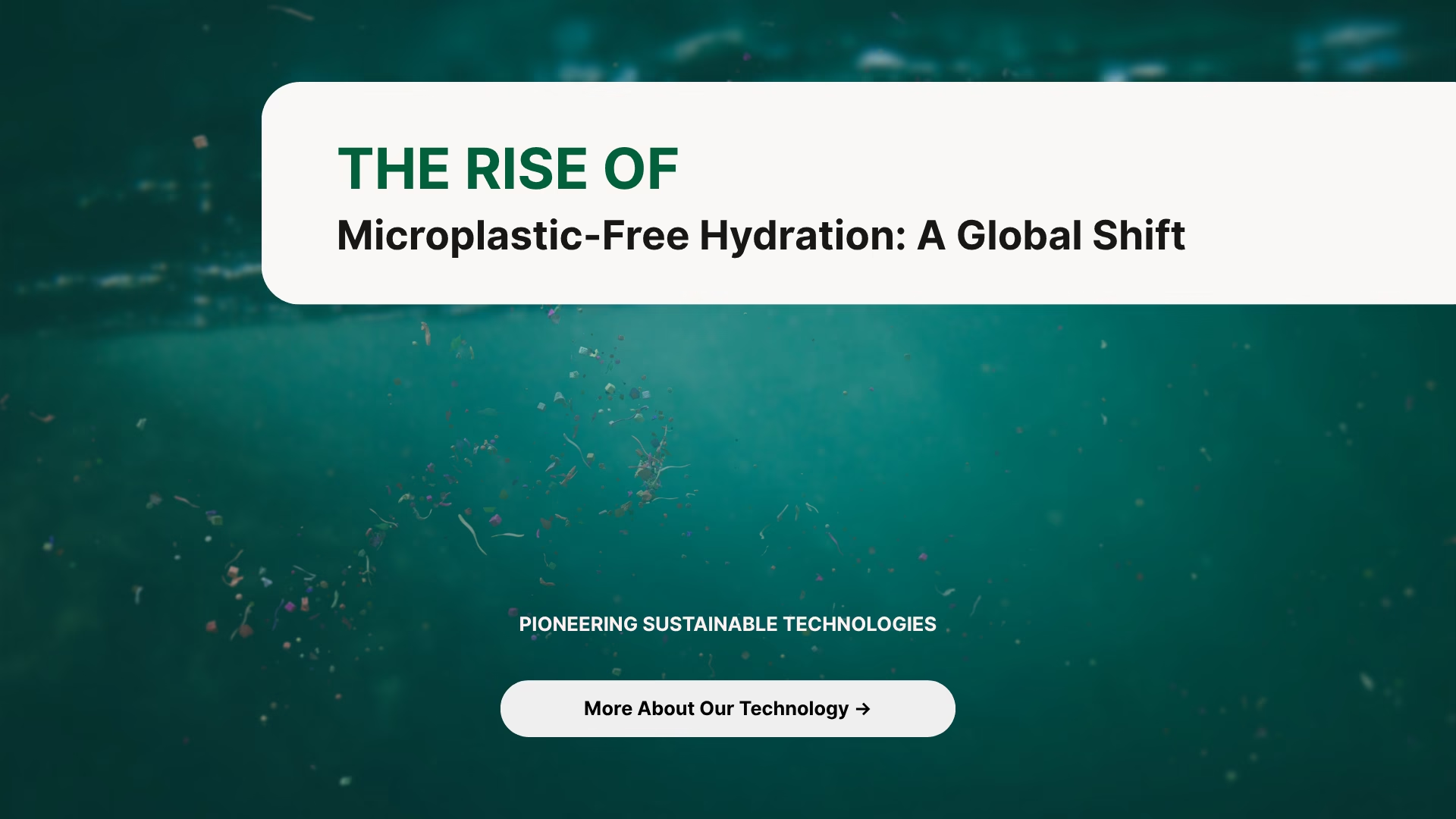As nanoplastics found in bottled water raise health concerns, demand for microplastic-free alternatives is growing—The Greener Tech Group sets the standard in safe, sustainable drinking.
Understanding the Hidden Threat in Bottled Water
Recent scientific findings have revealed a startling reality: bottled water is not as pure as we once believed. A study by the National Institute of Health (NIH) discovered that a single liter of bottled water contains approximately 240,000 plastic particles , with 90% classified as nanoplastics —particles so small they can enter the bloodstream, cross into the brain, and even reach a developing fetus.
These microscopic contaminants come from the very plastic bottles used to store the water. Common plastics such as PET (polyethylene terephthalate), PVC (polyvinyl chloride), and polystyrene shed nanoplastics over time, especially when exposed to heat or prolonged storage. Unlike traditional pollutants, these tiny particles bypass the body’s natural filtration systems, potentially causing cellular damage, inflammation, and hormonal disruption.
Animal studies have already shown alarming effects, including DNA damage, altered brain function, and immune system stress . With this evidence mounting, the need for microplastic-free hydration has never been more urgent.
The Global Response to Plastic Contamination
Around the world, governments, researchers, and consumers are waking up to the dangers of nanoplastics in everyday products. In response, there has been a significant shift toward biodegradable packaging, enzyme-assisted plastic degradation , and regulatory reforms aimed at reducing plastic contamination in food and beverages.
Countries like Canada, France, and Japan are investing heavily in plastic-free water technologies , while the European Union has proposed stricter labeling laws requiring companies to disclose nanoplastic content in bottled products.
Australia, however, is leading the charge through innovative solutions like those offered by The Greener Tech Group , which provides access to microplastic-free bottled water using depolymerization technology —a process that allows plastic to fully break down without leaving behind harmful residues.
The Science Behind Enzyme-Based Biodegradation
Unlike traditional recycling, which often results in lower-quality materials and still contributes to microplastic pollution, enzyme-based plastic breakdown offers a clean, closed-loop solution.
This process works by introducing an organic additive during manufacturing , which makes the plastic attractive to microbes. When the bottle ends up in landfill, naturally occurring microbes begin digesting it. They secrete enzymes that break down the carbon bonds within the plastic molecules—a process known as depolymerization —converting the material into natural fertilizer rather than toxic waste or microplastics.
This method ensures that every component of the bottle is returned safely to the environment, making it one of the most effective ways to eliminate plastic pollution at the source.
The Greener Tech Group’s Role in the Movement
While many companies offer “eco-friendly” alternatives, The Greener Tech Group stands out by providing verified, scalable, and scientifically backed solutions . Through strategic partnerships and import/export licensing, the group helps manufacturers transition to biodegradable HDPE & LDPE , chemical-free agricultural products , and plastic-free bottled water systems .
One of its key offerings includes support for brands looking to adopt enzyme-infused plastic technology , allowing them to produce their own 100% biodegradable bottled water containers under strict environmental guidelines.
Additionally, The Greener Tech Group actively promotes public awareness about the risks of nanoplastics and advocates for policy changes that will reduce plastic production and enforce transparency across industries.
What Consumers Can Do Today
Consumers play a vital role in driving this global shift. By choosing microplastic-free bottled water , supporting plastic-free policies , and demanding greater transparency from manufacturers , individuals can make a tangible impact on both personal health and environmental sustainability.
Some simple steps include:
- Choosing glass or stainless steel where possible
- Supporting brands that use biodegradable packaging
- Advocating for clear labeling of nanoplastic content
- Educating others about the hidden dangers in everyday plastic products
Conclusion: A Safer Future Starts Now
The movement toward microplastic-free hydration is no longer just a niche concern—it’s a necessity. As research continues to expose the long-term consequences of nanoplastic exposure, the demand for safer, sustainable alternatives will only grow.
With leaders like The Greener Tech Group paving the way, we now have the tools, technology, and knowledge to make real change. The question is no longer whether we can eliminate microplastics from our water—it’s whether we will act before it’s too late.
Key Summary
✓ Nanoplastics in bottled water pose serious health risks, including DNA damage, brain inflammation, and hormone disruption.
✓ A single liter of bottled water may contain up to 240,000 plastic particles , mostly nanoplastics.
✓ Depolymerization technology enables full biodegradation of plastic bottles without microplastic residue.
✓ The Greener Tech Group is leading the global shift by offering microplastic-free hydration solutions and promoting policy reform.
✓ Consumers can help by choosing biodegradable bottled water , advocating for transparency, and reducing plastic consumption.
✓ This global movement represents a critical step toward protecting both human health and planetary ecosystems .

